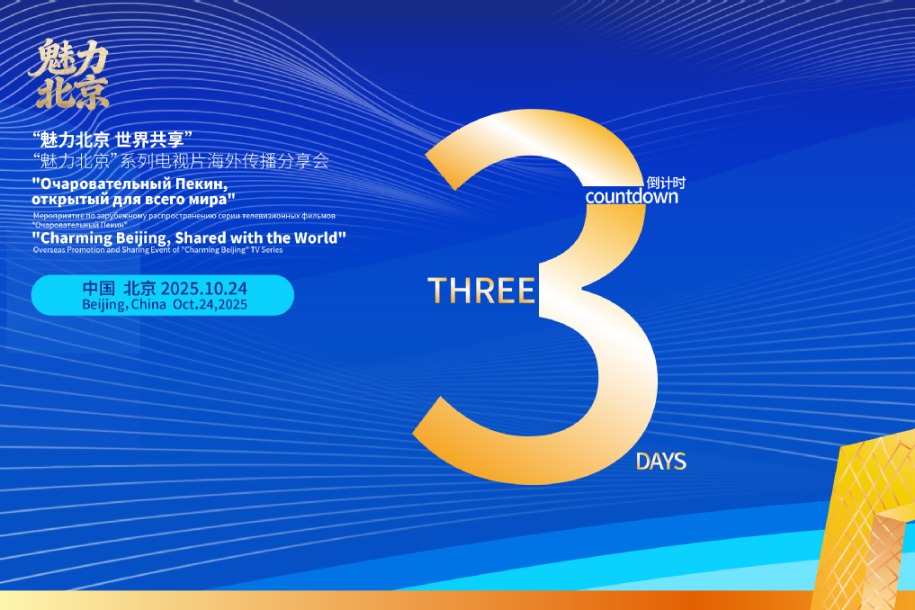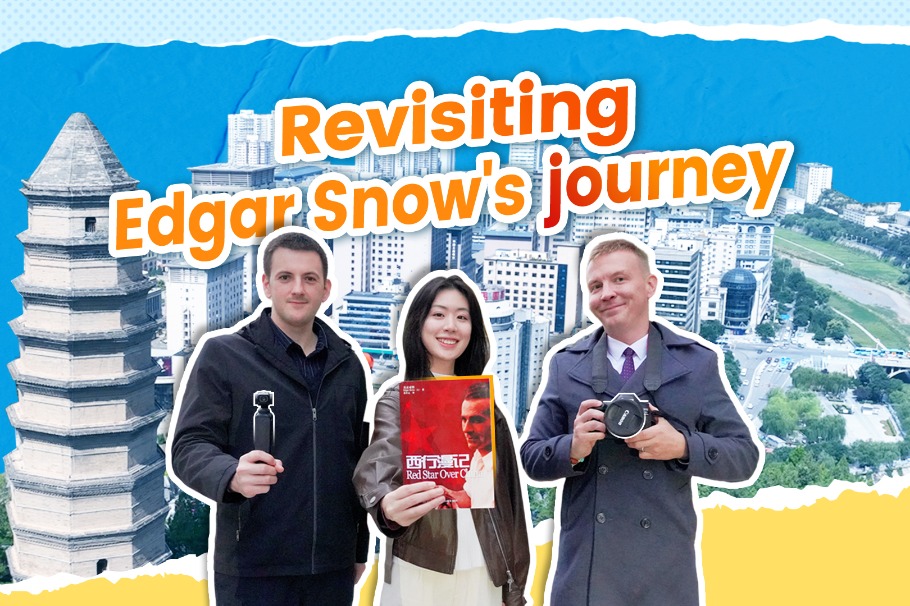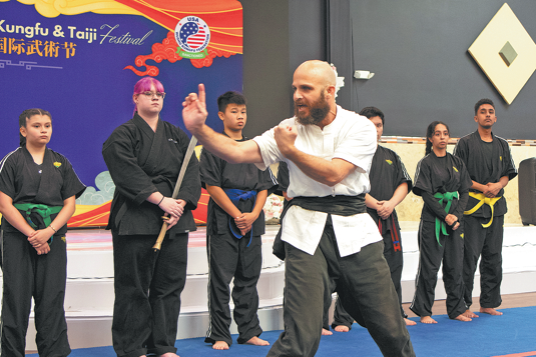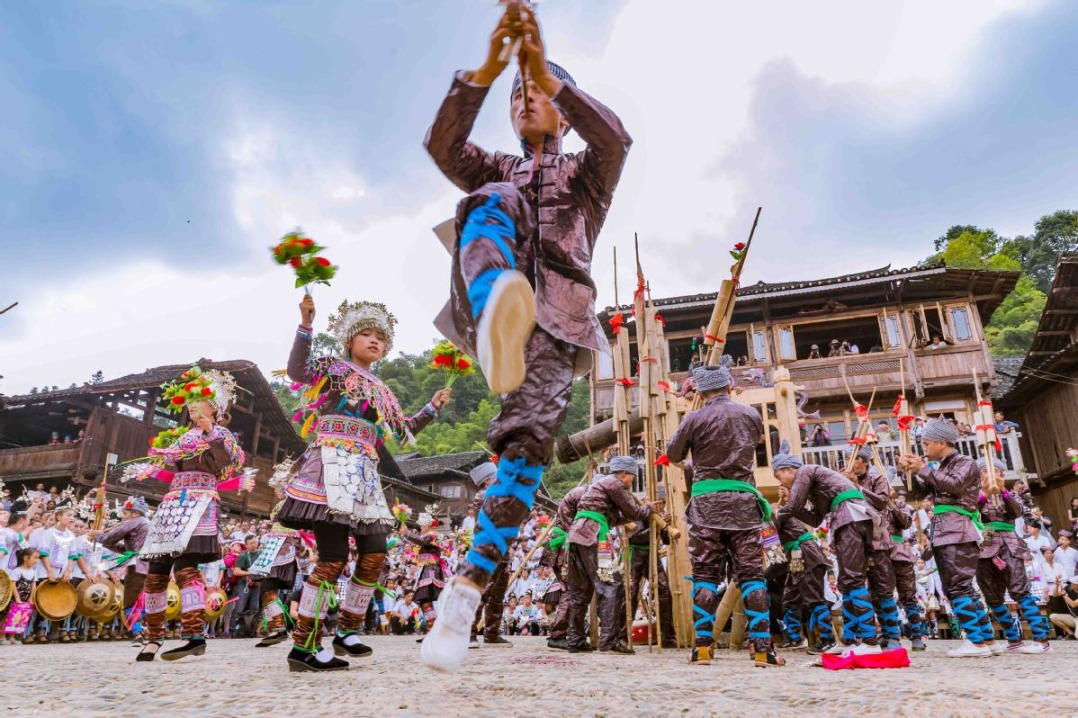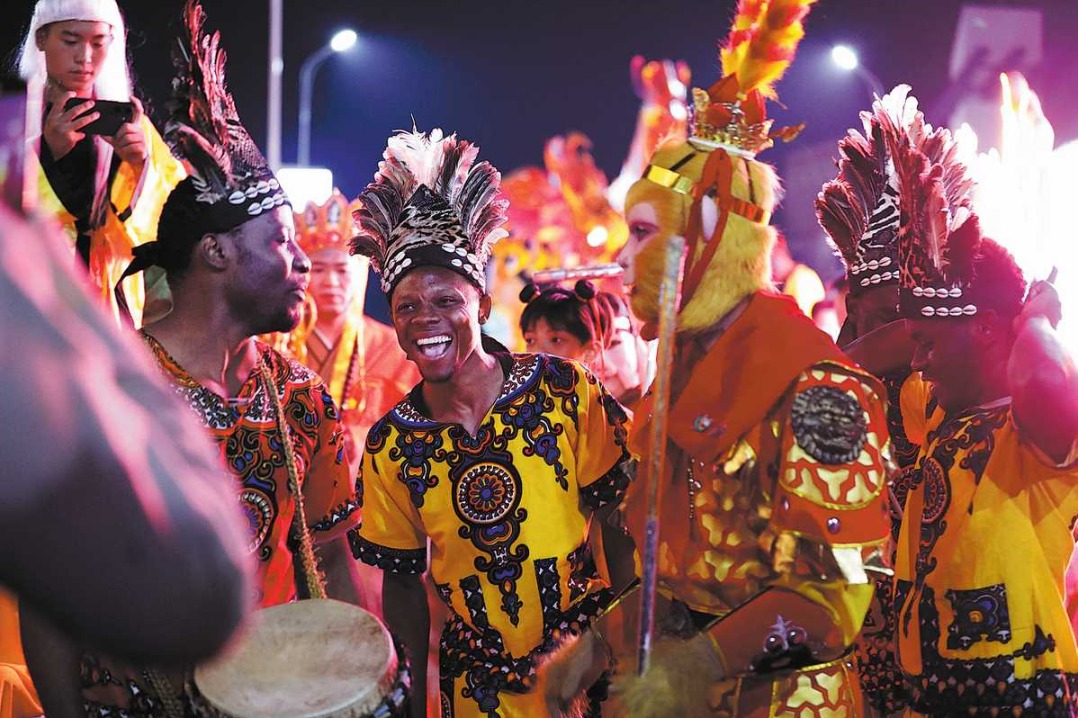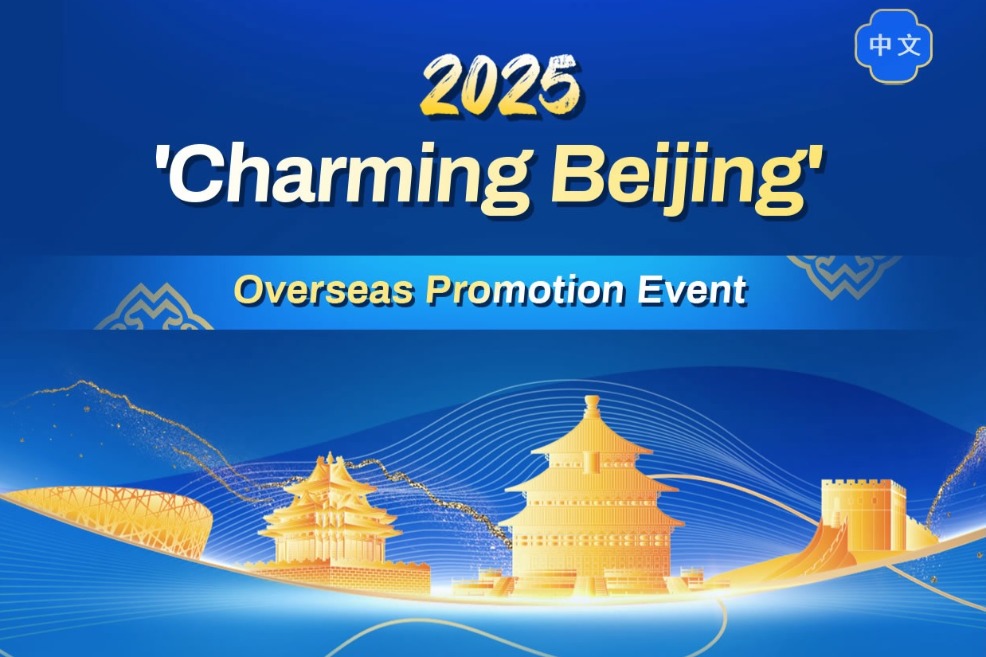Zhu: Cultural tourism, conventions set to play bigger role in Macao's economic landscape
By Gang Wen | chinadaily.com.cn | Updated: 2024-12-15 19:10
Editor's note: This year commemorates the 25th anniversary of Macao's return to the motherland. China Daily asks prominent figures in the special administrative region for their reflections on this significant milestone and listens to their visions for the city's continuing prosperity. Zhu Haisheng, secretary-general of the Macao Economic and Livelihood Alliance, says Macao's cultural tourism and exhibition industries will embrace a brighter future as the city advances its economic diversification.

1. How do you view Macao's development since its return to the motherland? Among the achievements made by Macao, which have impressed you the most? In your sector, has there been any major progress over the past 25 years?
Over the past 25 years, Macao has achieved remarkable progress in various fields, including the economy and people's livelihood. Those rapid advancements have transformed Macao completely. Most notably, the city's security situation has greatly improved since its return to the motherland. In addition, Macao's economic structure has evolved from being heavily reliant on the gaming industry to adopting a more diversified industrial structure. Today, Macao is globally recognized as a hub for gastronomy, conventions and exhibitions, as well as culture and arts.
The industries that I am involved in — news, cultural tourism, and conventions and exhibitions — have also flourished amid this transformation. In Macao's bid to become the ideal destination for hosting conventions, the industry has encountered unprecedented development opportunities. At present, Macao is dedicated to cultivating a new image as "cultural Macao". This provides substantial support for the development of the industry. We firmly believe that as Macao's efforts in industrial diversification continue, the cultural tourism and exhibition industries will welcome even broader development prospects and a brighter future.
2. The central government has rolled out an array of policy initiatives for Macao. Does any particular policy benefit your sector? If so, how?
In the field of cultural tourism and exhibitions, the central government has actively encouraged and supported Macao in building cooperative relationships with international exhibition organizations, participating in international exhibition activities, and enhancing the international reputation and influence of Macao's exhibition industry.
At the same time, the central authorities provide policy support for talent development, encouraging Macao to cultivate and attract professional talent in the exhibition industry to raise the industry's expertise and service quality.
The central government also continuously promotes policy coordination and regional cooperation between Macao and other cities of the Guangdong-Hong Kong-Macao Greater Bay Area, jointly creating a cooperative platform for the regional exhibition industry. This policy helps break down regional barriers and provides businesses with a broader market and more opportunities.
3. This year marks the third anniversary of the establishment of the Guangdong-Macao In-Depth Cooperation Zone in Hengqin. In your opinion, how should Macao continue to leverage the Hengqin zone's advantages to further develop itself and your sector?
Macao faces the dual challenge of limited land resources and a shortage of talent, whereas Hengqin boasts ample development space and a wealth of human resources, perfectly complementing Macao's deficiencies.
This is particularly beneficial for the sectors of culture and tourism, conventions and exhibitions, and media. For instance, an event can be simultaneously hosted in Macao and in the Cooperation Zone. Such synchronization not only promotes cultural exchange and economic cooperation between the two places but also brings new developmental momentum and vast market opportunities to our industry.
4. The Guangdong-Hong Kong-Macao Greater Bay Area has seen many notable developments over the past few years. How has Macao's integration with other parts of the GBA impacted your career? What kind of collaboration in the GBA you are anticipating?
The development of the GBA has provided Macao's residents with more career opportunities, especially in fields such as technology, finance, tourism and professional services. Talent is essential for business, and technology cooperation projects within the GBA offer companies more opportunities for innovative transformation.
At the same time, the development of the GBA offers the entire city unprecedented opportunities. We hope to see more collaboration in areas such as cultural tourism, exhibitions, and cross-border e-commerce. For instance, hosting international conferences, exhibitions, and festivals, as well as developing new tourist projects and cultural experiences.
5. Macao is a unique blend of Chinese and Portuguese cultures. How do you think this fusion can help the nation enhance communication with the international community and tell good stories of China?
Leveraging its close ties built with Portuguese-speaking countries, Macao possesses a unique advantage in international collaboration. Macao can fully utilize this advantage to act as a crucial bridge connecting Portuguese-speaking countries with the Belt and Road initiative. Telling good China stories through the Macao SAR not only highlights the city's unique value but also embodies its significant role on the global stage. Such positioning not only enhances the city's international influence but also opens a new chapter for cultural exchanges and economic cooperation between China and Portuguese-speaking countries.
6. Many of the city's young people were born after the city's return to the motherland. How do you think this anniversary resonates with the young generation? What messages would you like to convey to them on this historic occasion?
Many young people in Macao were born after the city's return to the country, and they may not have personally experienced the relatively backward living conditions, economic status, and security issues before, when career opportunities were more limited, too. Today, Macao has undergone tremendous changes, and I hope young people can cherish and appreciate the developmental achievements the city has obtained.
At the same time, I hope that Macao's younger generation will actively integrate into the Cooperation Zone in Hengqin and the GBA, seizing the opportunities within the national development goals. Regardless of the industries they are in, the policy support provided by the nation for the Cooperation Zone and the GBA is a valuable platform for them to engage in deeper exchanges and cooperation with various industries across the Chinese mainland. Through such interaction, Macao's youth can not only broaden their horizons but also contribute to their personal career development and the long-term prosperity of Macao.
7. What accomplishments do you hope Macao will achieve in the next 25 years?
I look forward to Macao continuing to drive economic improvements and development over the next 25 years. Beyond the gaming industry, Macao should actively expand into new emerging areas such as cultural tourism, trade and technology, achieving diversified industrial development. I also hope Macao strengthens its interactions with the Cooperation Zone in Hengqin to realize deeper levels of cooperation and integration.
Through such collaboration, Macao, Hengqin, and the entire GBA will be able to share resources, complement each other's strengths and jointly create a vibrant, innovation-driven regional development mode. This will not only create new growth opportunities for Macao but also contribute to the overall development of the GBA and the nation.






